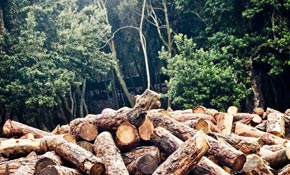
Earlier this year, Greenpeace hired US-based testing company Integrated Paper Services to conduct fibre tests on toy packaging in North America and tissues in New Zealand.
The NGO used the results of this research in its campaign to prove that APP used Indonesian rainforest fibres in products for the likes of New Zealand-based Cottonsoft as well as Mattel and Lego, which dropped APP as a supplier.
APP has now said Greenpeace's research was flawed. It claimed traces of mixed tropical hardwoods could come from either recycled material or PEFC-certified forests in other regions, such as South America.
APP has published the contents of a letter from Bruce R Shafer, chief executive of the testing company, Integrated Paper Services (IPS), who said the research could not be used to identify which country the samples came from.
"Therefore, we are unable to comment on the credibility of the statements Greenpeace has made regarding country of origin," said Shafer.
APP managing director of sustainability Aida Greenbury said: "Greenpeace based its entire global campaign against APP on a single premise: it had commissioned tests which proved that APP products contained Indonesian rainforest fibre. The company Greenpeace asked to carry out the tests has admitted this claim cannot be justified.
"We think Greenpeace owes the global toy industry an explanation: it has bullied and threatened them to stop doing business with both APP and Indonesia on the basis of a totally false claim," she said.
Greenpeace dismissed the latest allegations, calling them "nothing more than PR-driven nonsense by APP, the world's most notorious rainforest destroyer".
The NGO rejected APP's recycled argument by claiming that the tests only looked at the virgin fibre components of packaging, not the recycled content.
While APP claims that 95% of its packaging comes from recycled content and the other 5% from managed forests, Greenpeace said that test results had "revealed the presence of a significant portion of mixed tropical hardwood (up to 50%)".
Greenpeace campaigner Reece Turner explained: "The profile of these fibre tests, and many others, reveals that the packaging contains virgin fibre made from a mix of acacia and mixed tropical hardwoods. This matches with the majority of APP's sourcing, which is from rainforests and plantations in Indonesia.
"Field investigations and detailed chain-of-custody research draw an unequivocal link between rainforest destruction and APP operations, including its expanding acacia and eucalyptus pulpwood plantations," said Turner.
Comment below to have your say on this story.
If you have a news story or tip-off, get in touch at editorial@sprinter.com.au.
Sign up to the Sprinter newsletter
